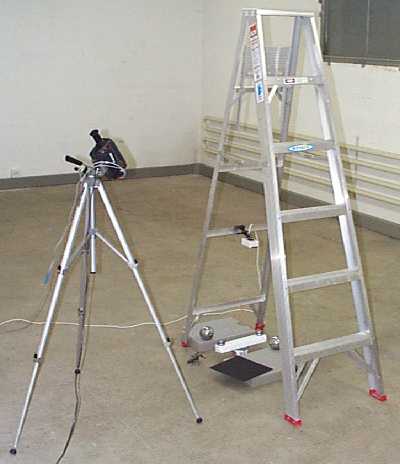"Gravitation is the tendency of masses to move toward each other. . . . Exactly why two masses separated in space have a gravitational attraction to one another remains largely unknown . . . ." (From Wikipedia article)Although Isaac Newton formulated the equations that quantify gravity which are used for most practical purposes, he also recognized that his formulation of "action at a distance" didn't explain anything and was inadequate (Principia Mathematica, 1687). (See Wikipedia article on Action At A Distance.)
Newton Was Only Close
Newton's theory of gravity, and formulas for calculating its effects, doesn't accurately account for several observations (for example it gives an erroneous value for the precession of the perihelion of Mercury). Einstein's General Theory of Relativity (1915) does accurately account for these observations. The Einstein field equations can calculate the relationship between the presence of mass/energy/momentum and the curvature of spacetime.So we know how to calculate and predict gravity's effects, using either Newton's laws or Einstein's equations as appropriate. But we still don't know how gravity works. We have an accepted standard description (General Relativity), but no mechanism.
It is still as Newton said:
I wish we could derive the rest of the phenomena of nature by the same kind of reasoning from mechanical principles; for I am induced by many reasons to suspect that they may all depend upon certain forces by which the particles of bodies, by some causes hitherto unknown, are either mutually impelled towards each other, and cohere in regular figures, or are repelled and recede from each other; which forces being unknown, philosophers have hitherto attempted the search of nature in vain.Even Einstein's concept of warping of spacetime doesn't explain how masses warp spacetime. As with other forces, gravity can be regarded as a wave or a particle, and gravitational waves have been detected. (just this year: Star and Telescope article.) (Also see Wikipedia on Gravitational Radiation.)
The Gravitational "Force"
 |
| Home-made Cavendish experiment |
The Current Theory
So in a sense we do understand how gravity works. The current hypothesis is that mater emits "gravitational waves" when it accelerates (but how?). Those waves affect the curvature of spacetime as they pass through it.Exactly how gravity works is of great interest because it is gravity which will determine whether the universe keeps expanding for ever or eventually recollapses.
What Is A "Theory"?
One reason I wrote this post is that I am puzzled. We don't even have a solid "theory of gravitation" (there are competing theories), and the theories we do have don't explain everything. Newton's theory, which is commonly taught as fact, is known to be wrong.On the other hand, the theory of evolution by natural selection is much better supported by experiment and observation, explains much about life, and continues to impress scientists with its ability to generate, employ and explain new and amazing information, for example from molecular biology.
Yet some people would insist we should teach "alternatives theories" to evolution. Where are their alternative theories regarding gravitational attraction?
Or maybe this is just a biologist's point of view. Do physicists see the situation differently?
Comments?
Additional Information
Amusing, satirical post on gravitational "theory" here.The image of the magnet and paper clips is form http://learningideasgradesk-8.blogspot.com/2011/01/how-strong-is-your-magnet.html
We are still exploring gravity.
Technorati tags:
science
science education
evolution
gravity
Science In Action


No comments:
Post a Comment